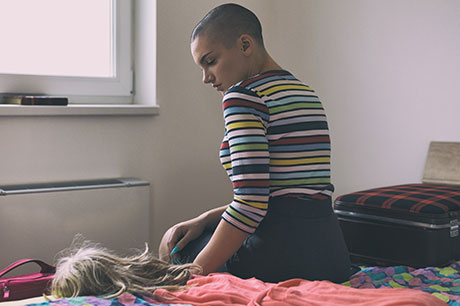Social and emotional impacts of cancer
With cancer often comes psychological and emotional challenges — some might show up early on, but others might not show up for years. Finding a support network during this time is important. Many people are facing the same challenges you are, and no one should have to confront them alone.
Speaking to a therapist can also be helpful. Many of our behavioral healthcare providers specialize in addressing the common psychological and social issues you may face, including:
- Fear of recurrence: It’s only natural to wonder if your cancer might return, and specific anniversaries or events can trigger these concerns.
- Grief and depression: Cancer treatment can affect your health, sex drive, fertility and physical independence. It's normal to struggle with your emotions around these areas.
- Survivor guilt: If you are a survivor, you may wonder why you survived when others didn’t — especially if you made (and lost) friends during your cancer journey.
- Relationships: Friends, coworkers and even family members may treat you differently after a cancer diagnosis. They may feel uncomfortable, and because they don’t know what to say, they may try to avoid you or the subject of cancer. Finding other survivors who understand what you’re going through can be helpful.
- Body image: Cancer survivors who have experienced amputations, scarring or a change in physical function can suffer from a lack of self-esteem that can affect their desire for intimacy and social interaction. Finding someone you can share these feelings with is important.
Help is available from our behavioral health specialists. You really don’t have to do this alone.

Content from General Links with modal content
